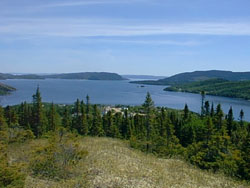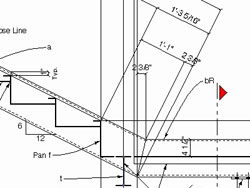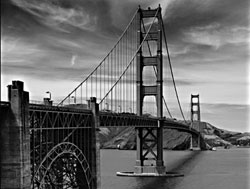Civil & Environmental Engineering
Areas of Interest
Environmental/Water Resources 
Environmental and water resource engineers apply engineering principles and sustainable
best management practices (BMPs) for the enhancement and protection of human health
and the environment.
Environmental engineers design water and wastewater treatment, wastewater collection and distribution systems, landfills, and hazardous waste treatment systems. They also assess the fate and transport of contaminants in the environment, design and apply best management practices (BMPs), and develop low impact strategies to treat runoff.
Water resources engineers analyze water supply and demand. They also plan and design canals, locks, port facilities, offshore structures, and systems such as water supply and distribution networks, urban drainage, and flood damage reduction works. Other important tasks include hydrologic analysis and modeling for predicting future availability of water and for continuous improvement of best management practices for sustainable utilization of water resources.
Faculty in this area are: Dr. Tania Datta, Dr. David Huddleston, Dr. Alfred Kalyanapu, and Dr. Lenly Weathers.
Mechanics 
Structural Mechanics is a field of engineering that deals with the understanding
of the thermo-mechanical behavior of solids under different types of loads. Structural
mechanics involves the evaluation of the stress and strain distributions within the
solids by combining engineering and physical science concepts with mathematical, computational,
and experimental techniques. Modern applications might include electrical, magnetic
and chemical phenomena that could affect the structural behavior. Course topics include
Mechanics of Materials, Advanced Mechanics of Materials, Elasticity, Experimental
Stress Analysis, Finite Element Analysis, Continuum Mechanics, Vibrations, and Composite
Materials.
Faculty in this area are: Dr. Jane Liu and Dr. Guillermo Ramirez.
Structural Engineering 
Structural engineers are designers and builders of all types of structures. Traditional
structures include bridges, dams, large buildings, power plants, offshore platforms,
and transmission towers. Other structures include aerospace vehicles (airplanes, rockets,
space station), ships, and automobiles. Structural engineers analyze the forces that
a structure must resist such as gravity, wind, earthquakes, and temperature and develop
the combination of appropriate materials (steel, concrete, timber, masonry, etc.)
needed to build such a structure. Structural engineering involves analysis and design
of steel, concrete, masonry, and wood structures with particular attention to design
specifications and practical considerations.
Faculty in this area are: Dr. Craig Henderson and Dr. Tim Huff
Transportation and Materials 
Transportation engineers are involved with the safe, rapid comfortable, convenient,
economical, and environmental compatible movement of people and materials. Transportation
infrastructure including airports, highways, ports, and railways are planned, designed,
and operated by transportation engineers.
Faculty in this area are Dr. Daniel Badoe, Dr. Steven Click, Dr. L.K. Crouch, Dr. Benjamin Mohr, and Dr. Daniel VandenBerge.

